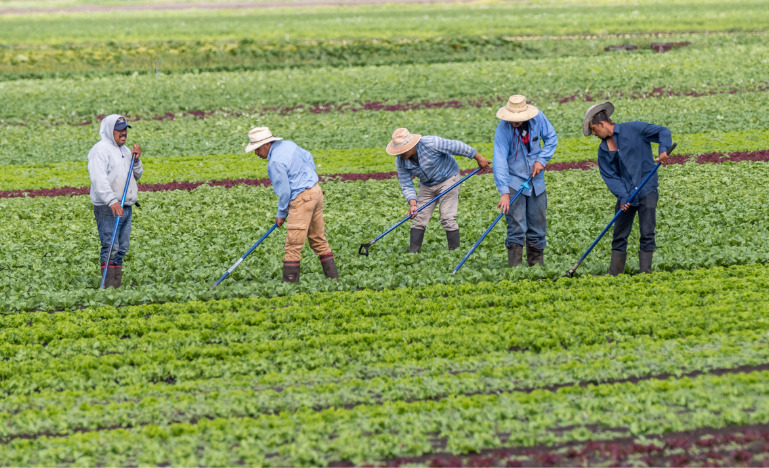Let's recognize the contributions made by foreign nationals
Alberta’s foreign workers and international students face increased hardships from Alberta’s immigration policy changes.

A new Alberta directive has foreclosed the only pathway open to temporary foreign workers for permanent residency. The changes are fundamentally unfair and out of sync with the rest of the country.
Temporary foreign workers in Canada often require the support of a Labour Market Impact Assessment (LMIA) to secure a work permit. An LMIA is permission for a Canadian employer to offer a position to a foreign worker. To get one, the company must demonstrate there are no qualified Canadians citizens or permanent residents available to fill the position, having undertaken stringent recruitment and advertising efforts. Historically, an employer would apply for a new LMIA, and once granted, the worker would apply to extend their work permit in Canada.
But on November 2, 2020, as part of its Alberta First approach, the province announced a ban on processing LMIAs for the vast majority of occupations (a mere 27 remain eligible). Unemployment resulting from Covid-19 is the Alberta government’s justification for the move.
No other province has enacted such sweeping bans on employers’ abilities to hire foreign workers, let alone those who are already here. LMIA processing falls under federal jurisdiction, to officers at Employment and Social Development Canada (ESDC).
Temporary foreign workers in low-skilled jobs, including most general labour and service sector occupations, are most affected. This is because their pathway to permanent residence is limited. These workers often come to Canada alone because their families are not eligible for companion work or study permits. They make these sacrifices because it gives them the chance to immigrate with their family one day and provide a bright future in Canada.
While skilled workers have several avenues to permanent residence, low-skilled workers must access immigration pathways that are specifically established by the provinces (Provincial Nominee Programs or PNPs). In Alberta, this is the Alberta Immigrant Nominee Program (AINP).
The AINP’s programs are not established by legislation or regulation. Rather, program details are simply published on their website, and subject to change without notice. Only those already legally living and working in Alberta can seek a nomination from the AINP. The program also favours those working with employer-specific work permits, the vast majority of which are LMIA-based. Furthermore, the AINP will not nominate anyone who is on “implied status”— meaning individuals who have applied to extend their temporary resident status (ie. visitors, students or workers).
At first glance, the policy change seems to make sense. Arguably, during a pandemic that has left tens of thousands of Albertans unemployed, the last thing we need is for workers from other countries to come to this province and take jobs that could otherwise go to out-of-work Albertans. However, these jobs are not going to workers coming from abroad. The policy changes affect workers already here, many of whom have invested many years in Alberta, building roots and contributing to its economy.
The changes are unduly harsh because the LMIA process is already a mechanism to safeguard the Canadian labour market. LMIAs are not granted for jobs for which there are Canadians (citizens or permanent residents) available. As such, the complete ban on LMIA-processing for the vast majority of jobs in Alberta is not only redundant of the safeguards already in place but appears to directly target temporary foreign workers who have sacrificed much to fulfil their dreams of having a better life here.
International students also face challenges in Alberta. Canada encourages foreign students to study here, incurring high fees, with a promise of permanent residence possibilities. On graduation, students can apply for Post-Graduation Work Permits (PGWPs), with virtually no restrictions on occupation, location or employer. This provides some flexibility to change jobs without needing an LMIA. However, the pathways to permanent residence for students can often be limited. The AINP is often the only option for many students. The AINP has increased requirements for students on PGWPs, namely that their work in Alberta must be directly related to what they studied in Alberta. In a provincial economy that has seen hundreds, perhaps thousands, of businesses shuttered, countless international students who have graduated from Alberta post-secondary institutions are now unable to find gainful employment. Because of these restrictions, a former international student who is working on implied status or an engineering graduate who has taken a survival job at Tim Hortons is simply out of luck.
While Alberta is introducing increased restrictions for foreign nationals, the federal government is introducing policies to facilitate their ability to regularize their status. For example, Immigration, Refugees and Citizenship Canada has extended the period to apply for restoration of their status:
The COVID-19 pandemic has threatened the livelihood and well-being of people who have dedicated years of their lives to this province. This includes all of those who have worked low-paying jobs in essential industries while risking daily exposure to COVID-19. Our immigration policies should not cause additional hardship during an already very difficult time. This is the time to recognize the contributions made by foreign nationals in Alberta, whether socially or economically.


